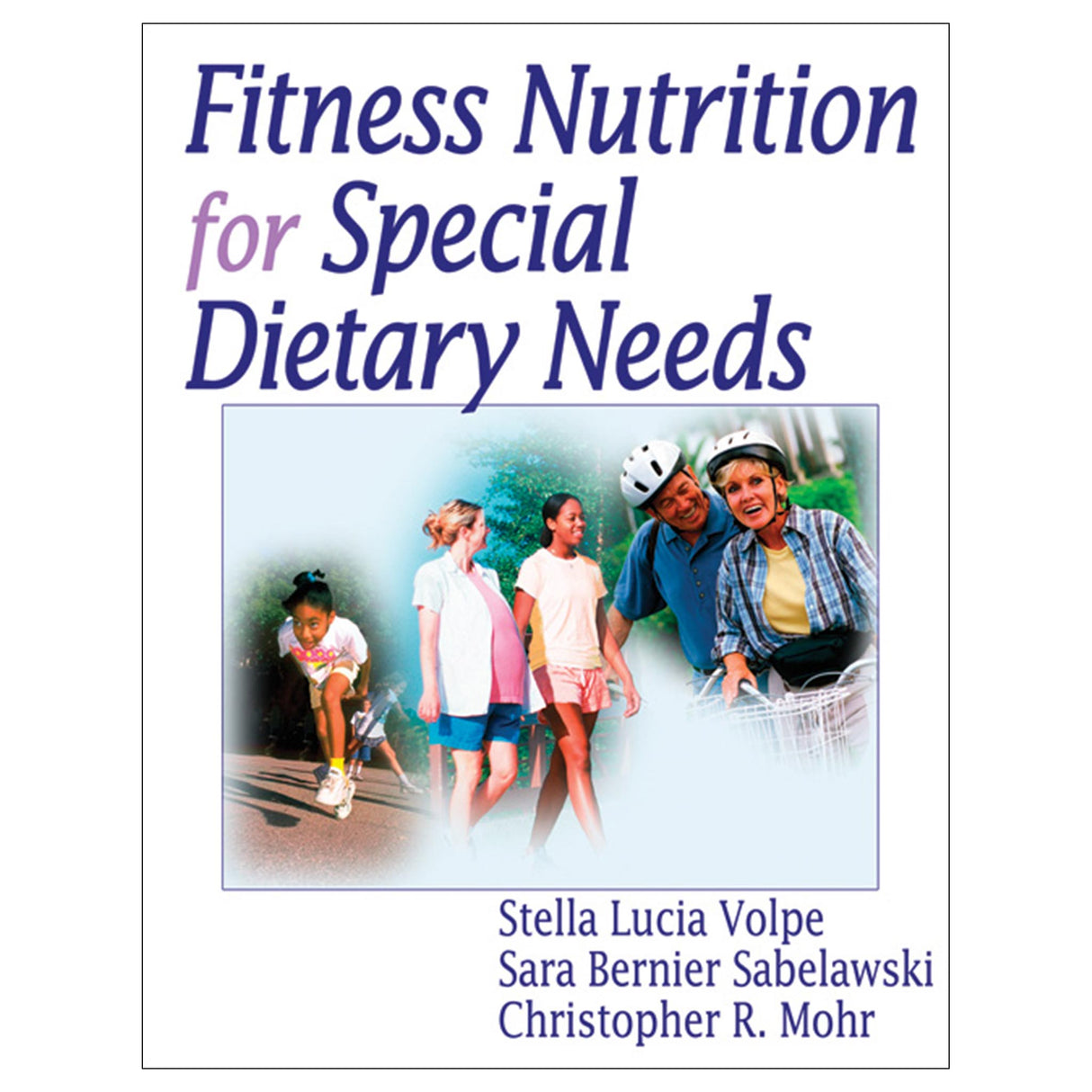Fitness Nutrition for Special Dietary Needs PDF
$47.95 CAD
Access Duration: 10 Years
As physical activity becomes increasingly popular, the diversity of active participants is greater than ever. Professionals working with active clients have an appreciation for the fact that many of their clients face unique dietary challenges. Fitness Nutrition for Special Dietary Needs is the first book to deliver state-of-the-art nutrition information pertaining to a variety of these special populations with distinctive dietary needs.
This easy-to-use reference provides scientifically based nutrition guidelines for a wide range of physically active clients—including vegetarians, pregnant and menopausal women, children and adolescents, older adults, people with diabetes, and participants in weight-restricted sports. Written in a straightforward manner, Fitness Nutrition for Special Dietary Needs is ideal for athletic trainers and personal trainers. It allows them to guide clients in proper eating for optimal exercise performance, and it recognizes when a client needs to be referred to a registered dietitian. The text may also be used as a quick reference for nutritionists and dietitians and as a valuable resource for those who exercise competitively, for health and fitness, or just for fun.
The following are some of the text’s useful features:
•44 figures, tables, and special elements that you can photocopy and give to patients or clients to ensure they follow your suggestions—including examples of poor versus better carbohydrate choices, the Motherwell Pregnancy Food Pyramid, and the health effects of certain fats
•12 real-life case studies from guest dietitians to illustrate how the material can be applied in a variety of settings
•Sample meal plans and an appendix of alternative food choices that you can photocopy so you can design individualized plans for patients or clients and teach them how to adapt the plans to accommodate personal tastes and needs
•Exercise guidelines for specific populations to assist you in prescribing appropriate exercise for each person’s condition and stage of life
In addition, the reference is valuable to coaches and sports medicine physicians in their efforts to provide sound dietary advice to both noncompetitive exercisers who want to stay fit and competitive athletes who want to achieve optimal performance. The text contains practical guidelines for addressing the needs of children who exercise and play sports as well as the needs of overweight athletes and exercisers in weight-dependent sports—an area often overlooked in sport nutrition books.
Physical therapists who work with the geriatric population will also find the resource useful because it will bring them up to date on meeting the nutrition and exercise needs of older adults as they progress through the physiological changes that come with aging. Psychiatrists will use the practical information to ensure proper counseling, healthy nutrition, and appropriate exercises for patients with eating disorders and disordered eating.
There is no better resource for anyone who needs to understand scientifically based nutrition guidelines for a wide range of physically active people. Fitness Nutrition for Special Dietary Needs explains nutrition guidelines for unique populations and also helps you prescribe a healthy diet appropriate to each client’s condition and stage of life to ensure they achieve optimal performance and stay fit.
Chapter 1: Childhood and Adolescence
Chapter 2: Aging
Chapter 3: Menopause
Chapter 4: Pregnancy
Chapter 5: Vegetarianism
Chapter 6: Overweight and Obesity
Chapter 7: Diabetes Mellitus
Chapter 8: Disordered Eating and Eating Disorders
Chapter 9: Exercise in Extreme Environment
“... The handouts, meal plans, charts, and case studies make it a worthwhile purchase for even the most seasoned sports nutritionist.”
-SCAN’s PULSE Newsletter





